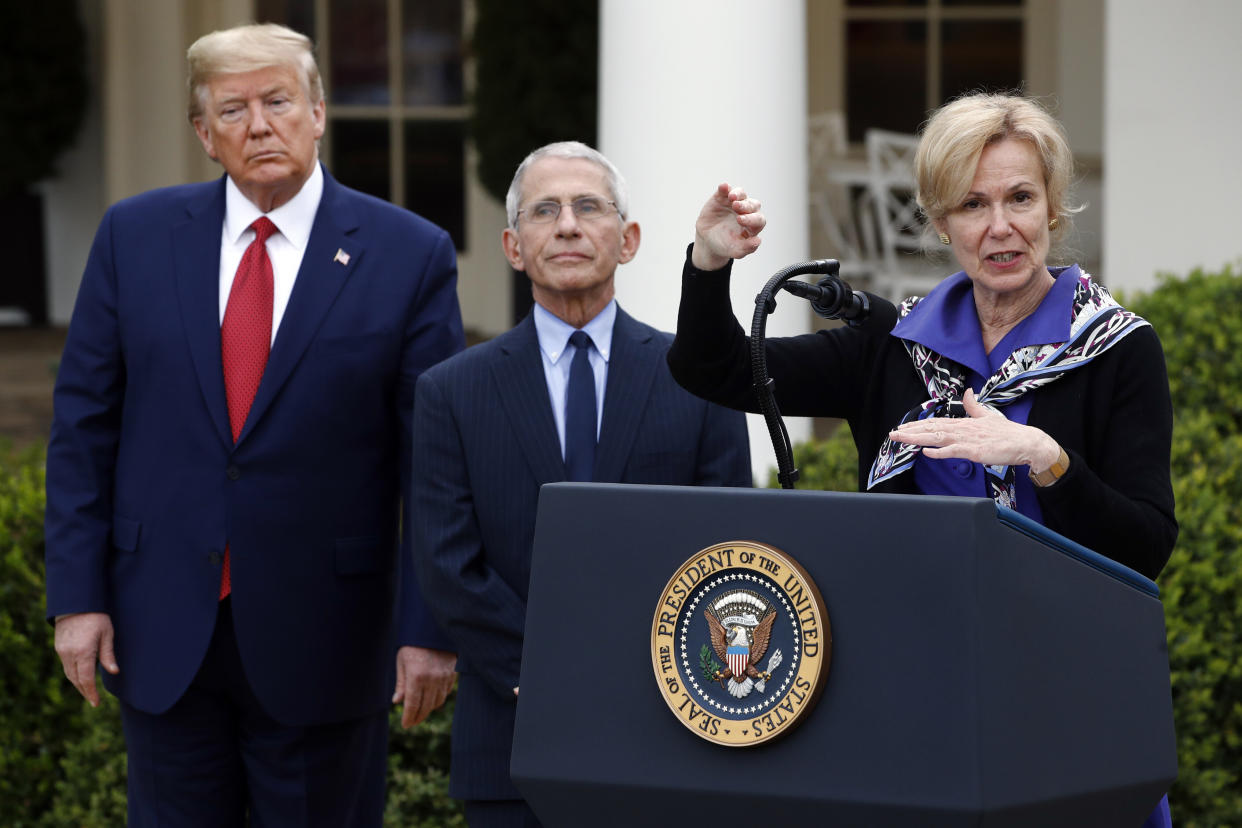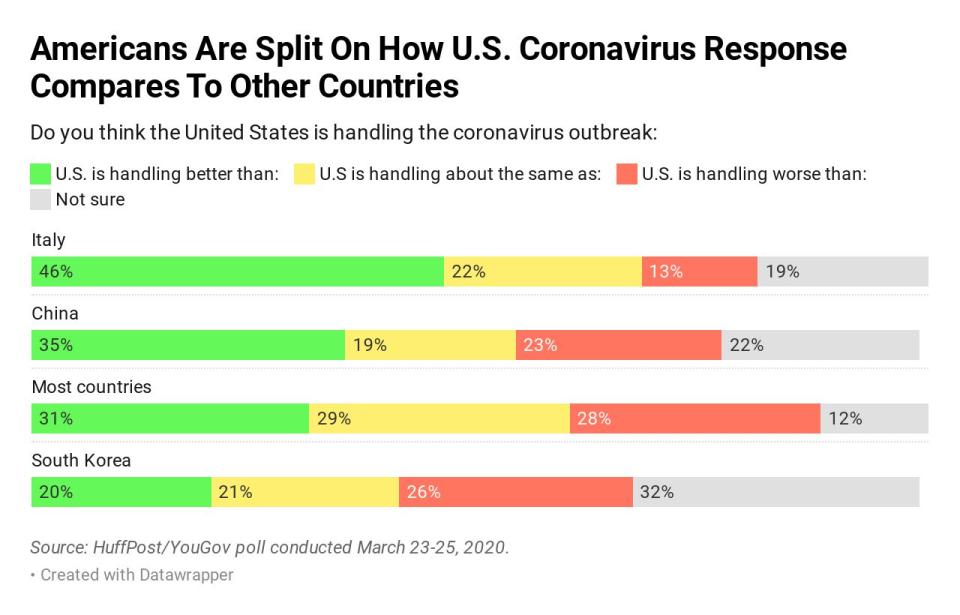Americans Are Split On How U.S. Coronavirus Response Compares To That In Other Nations

Americans are split on how the U.S. is handling the coronavirus outbreak compared with other countries, a HuffPost/YouGov poll conducted last week finds.
Thirty-one percent say the U.S. is doing better than most other countries, 29% that it’s doing about the same and 28% that it’s doing worse. An additional 12% aren’t sure.

Nearly half say the U.S. has been more successful than Italy, which has been ravaged by the virus. Just 20% think the U.S. has done better than South Korea, which implemented an early program of widespread testing.
NEW: Monday 30 March update of coronavirus mortality trajectories
• US deaths doubling every 3 days, as Fauci predicts over 100k US deaths. How different could things have been if US had locked down like China?
• UK still tracking Italy
Live version: https://t.co/VcSZISFxzF pic.twitter.com/13ry61K7FI— John Burn-Murdoch (@jburnmurdoch) March 30, 2020
Opinions on how the U.S. response compares with others’ is sharply polarized, with 62% of Republicans and 12% of Democrats saying the country has done better than most other nations.
Americans are about evenly split on how the U.S. should envision its role internationally, the poll finds, with 42% saying it’s best for the future of the country to be active in world affairs and 41% that the U.S. should pay less attention to problems overseas and concentrate on problems at home. Those numbers are within the range of other polling taken in the past three years and suggest that the country’s appetite for isolationism remains lower than it was in 2016.

Use the widget below to further explore the results of the HuffPost/YouGov survey, using the menu at the top to select survey questions and the buttons at the bottom to filter the data by subgroups:
Love HuffPost? Become a founding member of HuffPost Plus today.

The HuffPost/YouGov poll consisted of 1,000 completed interviews conducted March 23-25 among U.S. adults, using a sample selected from YouGov’s opt-in online panel to match the demographics and other characteristics of the adult U.S. population.
HuffPost has teamed up with YouGov to conduct daily opinion polls. You can learn more about this project and take part in YouGov’s nationally representative opinion polling. More details on the polls’ methodology are available here.
Most surveys report a margin of error that represents some but not all potential survey errors. YouGov’s reports include a model-based margin of error, which rests on a specific set of statistical assumptions about the selected sample rather than the standard methodology for random probability sampling. If these assumptions are wrong, the model-based margin of error may also be inaccurate. Click here for a more detailed explanation of the model-based margin of error.
A HuffPost Guide To Coronavirus
Stay up to date with our live blog as we cover the COVID-19 pandemic
When will life return to normal? Europe has some answers.
Digestive issues might be an early sign of coronavirus
How to file for unemployment if you’ve been laid off
Avoiding going to the store? Here’s how to order groceries online.
What to do if you live with someone with COVID-19
How often do we really need to wash our faces?
What coronavirus questions are on your mind right now? We want to help you find answers.
This article originally appeared on HuffPost.


